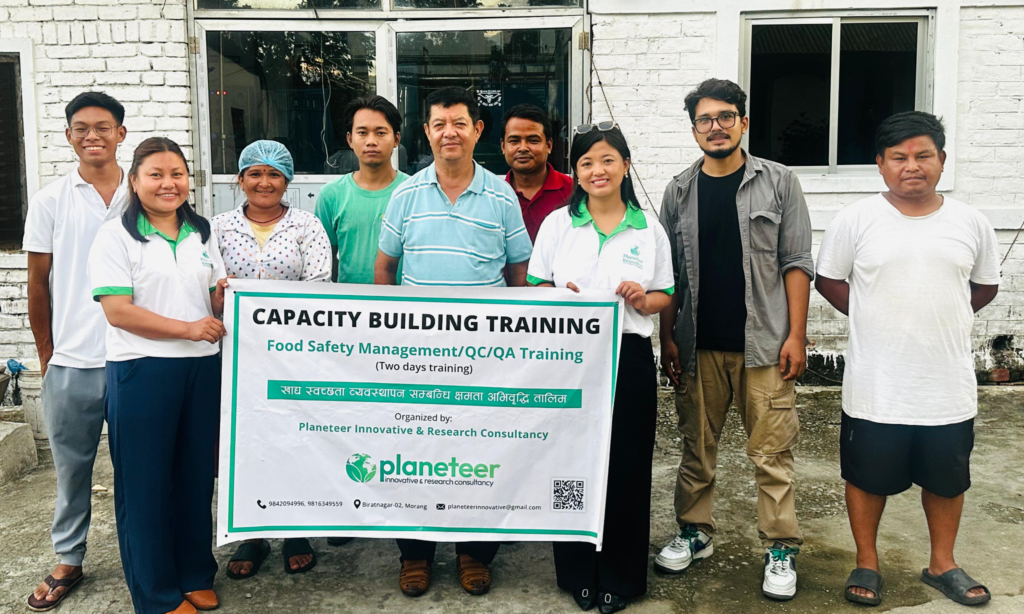Nepal’s agri-food sector presents immense opportunities, with agriculture employing over 65% of the population and contributing significantly to the nation’s GDP. However, many aspiring entrepreneurs face challenges that hinder their success. In this comprehensive guide, we’ll explore the top 10 mistakes to avoid when starting your agri-food business in Nepal, based on the latest research and expert knowledge.
1. Neglecting In-Depth Market Research
Understanding consumer preferences and market demand is very important. A study by the International Food Policy Research Institute (IFPRI) highlighted that many agri-food startups in Nepal fail due to a lack of market orientation and consumer insight. Engaging with local communities and conducting surveys can provide valuable data to tailor your products effectively.

2. Underestimating Financial Planning
Financial mismanagement is a leading cause of startup failure. According to a report by the Asian Development Bank (ADB), many Nepali startups lack robust financial planning, leading to cash flow issues and unsustainable growth. It’s very important to create detailed financial projections, including startup costs, operating expenses and revenue forecasts to get success in Agri-Food Business in Nepal.

3. Overlooking Regulatory Compliance
Nepal’s food industry is governed by various regulations, including the Food Act and the Food Standards and Control Act. Non-compliance can result in fines or business closure. Ensure your business adheres to all local and national regulations, including food safety standards and environmental guidelines.
4. Choosing the Wrong Business Model
Selecting an inappropriate business model can impede growth. A study by the Nepal Agricultural Research Council (NARC) found that businesses focusing solely on production without considering value addition or market access often struggle. Consider models that incorporate processing, packaging and direct to consumer sales to enhance profitability in agri-food business in Nepal.
5. Ignoring Technological Integration
The adoption of technology in agriculture is on the rise. According to the Food and Agriculture Organization (FAO), digital tools can improve productivity and reduce costs. Implementing technologies like farm management software, automated irrigation systems and online marketing platforms can make your business more competitive.
6. Inadequate Supply Chain Management
Efficient supply chains are vital for timely delivery and quality assurance. The Nepal Food Corporation’s 2024 report indicated that poor logistics and lack of cold storage facilities lead to significant post-harvest losses. Investing in reliable transportation and storage solutions can mitigate these issues.

7. Lack of Skilled Workforce
A skilled workforce is essential for quality production. According to the Ministry of Agriculture and Livestock Development, there’s a shortage of trained personnel in the agri-food sector. Providing training programs and collaborating with vocational institutions can help bridge this gap.
8. Overlooking Branding and Marketing
Effective branding differentiates your product in a vast competitive market. The Nepal Chamber of Commerce’s 2024 survey found that many agri-food businesses fail to establish a strong brand identity that is affecting consumer trust and sales. Invest in branding, digital marketing and customer engagement strategies to build a loyal customer base.

9. Underestimating the Importance of Networking
Building relationships with stakeholders can open doors to new opportunities in agri-food business in Nepal. Participating in industry events, joining associations and collaborating with other businesses can provide valuable insights and partnerships.

10. Failing to Adapt to Market Changes (Agri-Food Business in Nepal)
The agri-food business in Nepal is dynamic, with changing consumer preferences and market trends. A report by the World Bank emphasized the importance of adaptability for business sustainability. Regularly reviewing market trends and being open to innovation can help your business stay relevant.
Conclusion
Starting an agri-food business in Nepal offers vast potential but requires careful planning and execution. By avoiding these common mistakes and leveraging the latest industry insights, you can set your venture on a path to success. Remember, thorough research, financial discipline and adaptability are key to thriving in this sector.
If you need tailored guidance for your business according to your specific condition in person, our expert team is here for you. Reach out to Planeteer Innovative and Research Consultancy today for personalized support and solutions.





